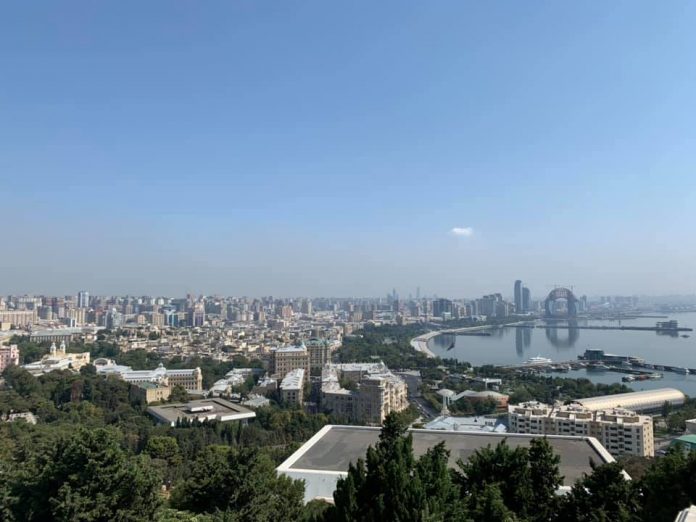The oil-rich Caucasus nation of Azerbaijan is gradually becoming a hub of energy stability in its region, and looks to expand its influence in the Central Asian countries as well, Greek website EnergyMag reported.
In 2020, Azerbaijan also started to export commercial natural-gas supplies to the EU using the Trans Adriatic Pipeline (TAP).
Back then, the first gas from Azerbaijan reached Italy, via the Melendugno interconnection point with SNAM Rete Gas (SRG), as well as Greece and Bulgaria, via the Nea Mesimvria interconnection point with DESFA, the country’s state energy company SOCAR said, adding that for Azerbaijan this also means an increase in national income, diversification of export routes, and a boost for its economic independence.
However, this has also meant that Azerbaijan is helping Europe diversify its own energy supplies and decrease its dependence on Russian gas. By providing these opportunities, Azerbaijan is also having a deeply strategic role that could mean a lot for other nearby countries as well, experts tell EnergyMag.
“With the support of newly build pipelines TAP and TANAP, Azerbaijan will not only sell its own gas, but also the gas from Central Asian countries like Turkmenistan for example, so they will also decrease their dependence from Russia, since most of their old pipelines cross through it.” Baku-based petrochemical engineer Suleyman Hajizada told EnergyMag.
The 878-kilometer TAP is a part of the Southern Gas Corridor, and took more than $30 billion and 7 years to build. The TANAP Project aims to bring the natural gas produced in Azerbaijan’s Shah Deniz-2 gas field, and other areas of the Caspian Sea, primarily to Turkey, but also to Europe. Central Asian countries like Turkmenistan have also signed up to start exporting natural gas to Europe once TANAP is up and running.
Being energy dependent on Russia is a reality for most countries in Central Asia, and having Azerbaijan as a trusted partner could change all of this. According to experts, projects such as the Trans-Caspian pipeline could be a proof of this.
“The Trans-Caspian pipeline will take Turkmen gas, crossing Georgia and Turkey, and therefore Central Asian countries can increase their independence from Russia. If there is a conflict with Russia, it is not so easy for the Central Asian countries to negotiate. But if you have partners like Azerbaijan and Turkey, with roughly the same potential, then these countries could talk and negotiate the conditions with us.” Ziya Kazimzada, research fellow at the Topchubasov center, a Baku-based think tank, tells EnergyMag.
According to Kazimzada, the issue that Turkmenistan and Azerbaijan managed to resolve last year regarding gas fields located in the Caspian Sea, is a testimony of how better relations between countries in the region can help decrease being energy dependent on Russia.
At the beginning of this year the two countries agreed to jointly develop a disputed hydrocarbon field that is located midway between them in the Caspian Sea. Such development is a major step which also rekindles the prospect of the construction of the Trans-Caspian pipeline, Kazimzada added.
Such cooperation and similar developments in the future could also mean that Azerbaijan is a serious contender and could challenge Russia when it comes to the gas market, while providing valuable energy supplies for Europe.












